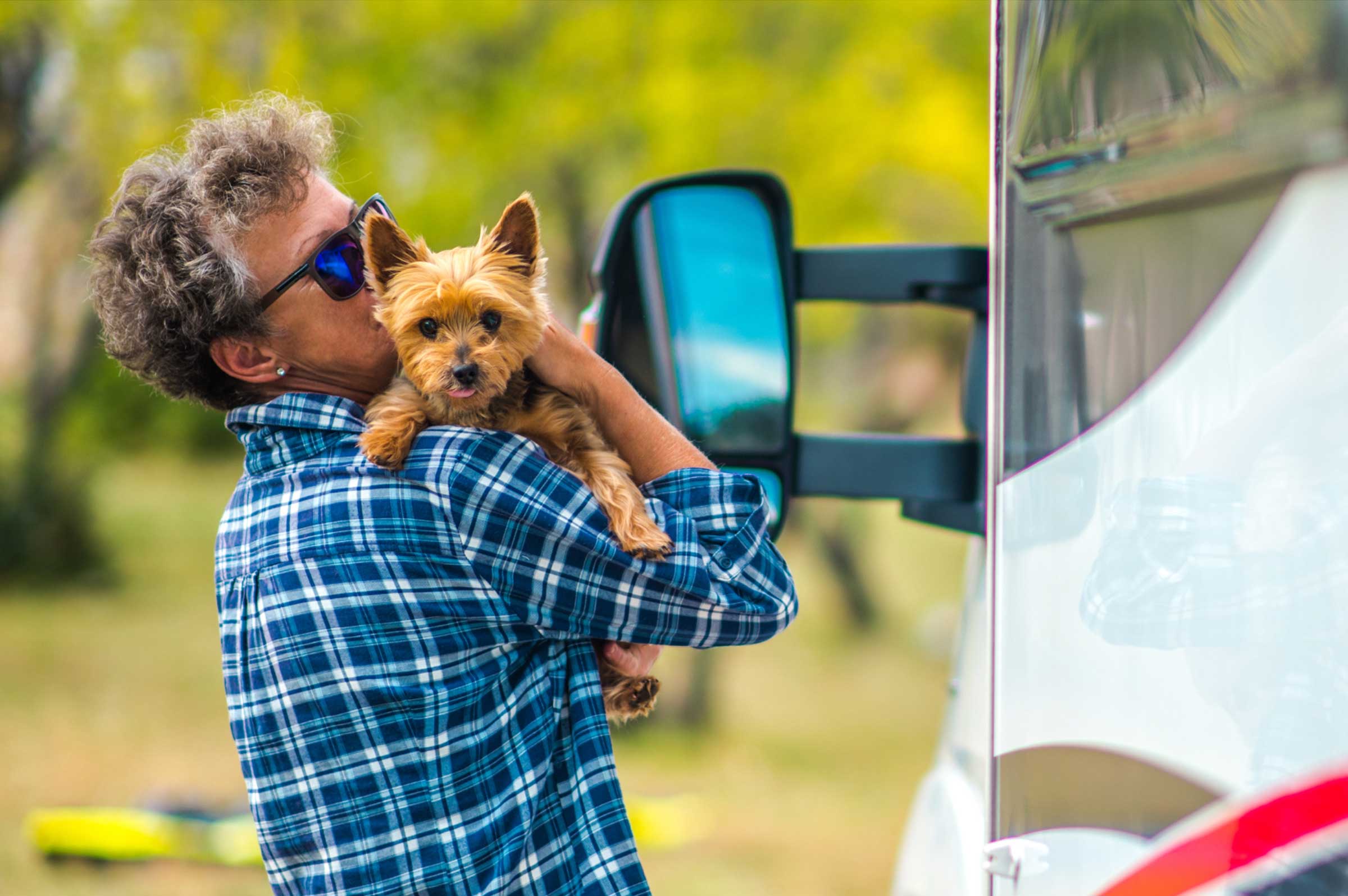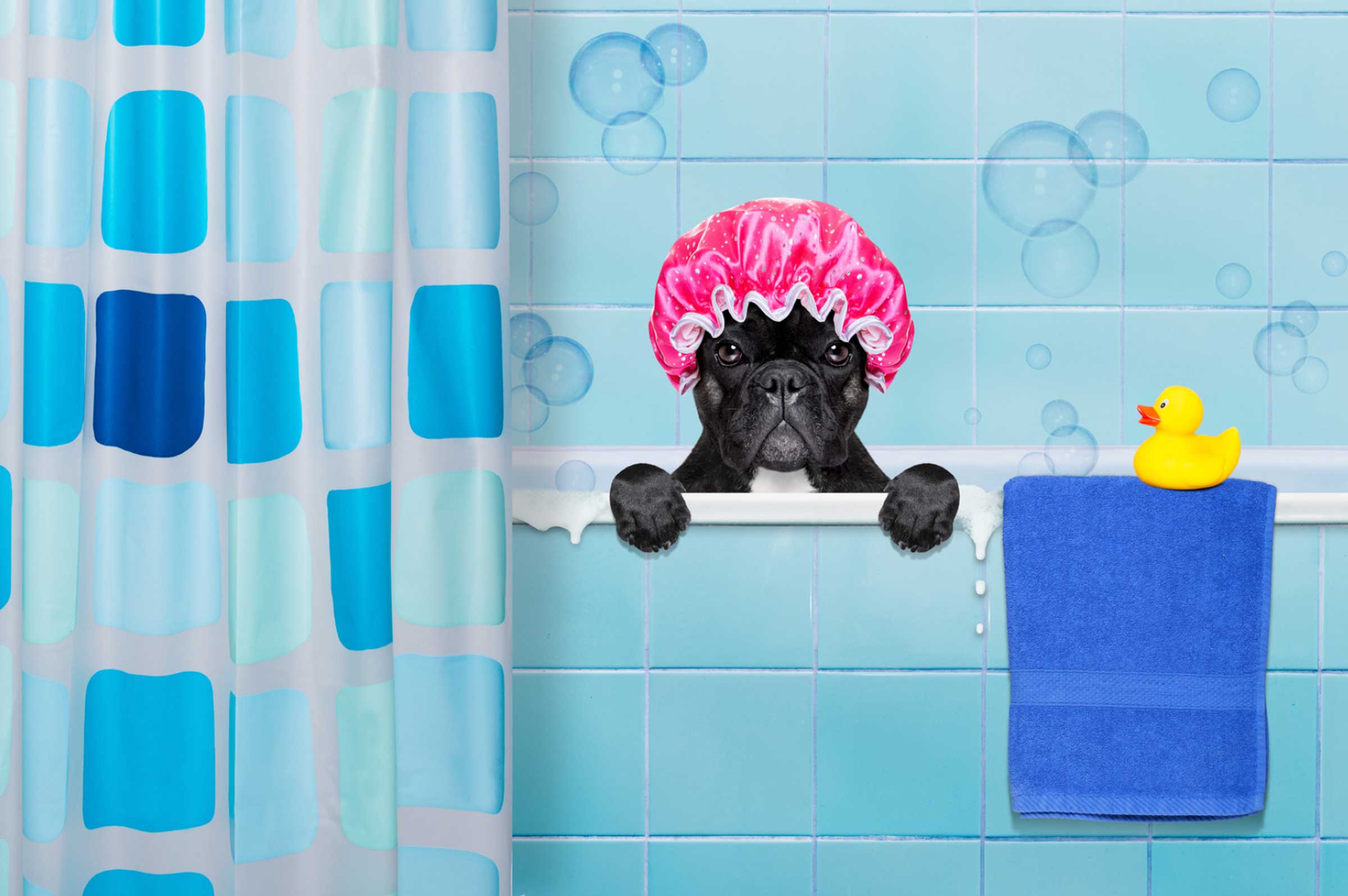Dogs typically need between ½ to 1 ounce of water per pound of body weight each day. For example, a 40-pound dog should drink around 20 to 40 ounces of water daily. However, this can vary based on factors like age, activity level, and the weather. Puppies and very active dogs may need more water, while older or less active dogs may need less.
Why and How to Measure Your Dog's Water Intake
Measuring your dog’s water intake can help you monitor their health. Start by filling your dog’s bowl with a set amount of water in the morning and tracking how much is left at the end of the day. This can help you notice any sudden changes in their drinking habits, which may indicate health issues. It's important to note that both an increase and a decrease in water intake can be warning signs that something is wrong.
Things That Might Make a Dog Drink More or Less Water
- Hot weather or exercise: Dogs tend to drink more during warm weather or after physical activity to stay hydrated.
- Diet: Dogs on a dry food diet may drink more water compared to those eating wet food.
- Illness: Conditions like kidney disease, diabetes, or infections can increase thirst, while certain medications can affect water consumption.
- Age: Puppies and older dogs might need more or less water depending on their metabolism and activity level.
Why Dogs Gag or Throw Up After Drinking Water
Dogs may gag or vomit after drinking water for several reasons, and while occasional incidents are usually not a cause for concern, frequent episodes may indicate an underlying issue.
Drinking Too Quickly
One of the most common reasons dogs gag or vomit after drinking water is that they drink too quickly. When a dog gulps water rapidly, they often swallow air along with it, which can lead to gagging or vomiting. This happens particularly after playtime or exercise when they’re overheated and eager to rehydrate. Drinking large amounts of water quickly can cause their stomach to become distended, leading to discomfort and regurgitation.
Cold Water Shock
If a dog drinks very cold water, especially right after exercise, it can irritate the stomach lining. Some dogs have more sensitive digestive systems and may respond by vomiting shortly after consuming ice-cold water. While it’s generally safe to offer cold water, it’s a good idea to let the dog cool down first or provide water at room temperature after physical activity.
Esophageal Problems
A more serious cause of gagging or vomiting after drinking water is a condition called megaesophagus. This occurs when the esophagus is enlarged and doesn’t function properly, making it difficult for food and water to move from the throat to the stomach. As a result, water may sit in the esophagus and cause regurgitation soon after drinking.
Gastrointestinal Issues
Dogs suffering from gastrointestinal conditions like acid reflux, gastritis, or ulcers may also vomit after drinking water. The cold temperature of the water or the volume consumed at once can trigger these sensitive digestive systems, leading to gagging or vomiting.
How to Help Your Dog
If your dog frequently gags or vomits after drinking water, try offering smaller amounts more frequently throughout the day, rather than letting them drink a large quantity at once. You can also elevate their water bowl, which can help dogs with esophageal issues drink more comfortably.
When to Contact Your Veterinarian
- Sudden change in water intake: If your dog’s drinking habits drastically change, whether they're drinking more or less than usual.
- Frequent vomiting after drinking: Regular gagging or vomiting after drinking water could indicate a serious problem.
- Signs of dehydration: Lethargy, dry gums, or a loss of skin elasticity are signs that your dog isn’t getting enough water.
- Excessive thirst: If your dog is drinking excessively without any obvious cause, this could be a sign of a health issue, such as diabetes or kidney disease.
Measuring and understanding your dog’s water intake can help you detect issues early. Always consult your vet if you notice unusual drinking behaviors.
Final Thoughts
In conclusion, while occasional gagging or vomiting after drinking water is often harmless, frequent episodes can signal a deeper issue. Monitoring your dog’s drinking habits and making small adjustments, like offering smaller amounts of water or using an elevated bowl, can help prevent these occurrences.
However, if the behavior persists or is accompanied by other worrying symptoms, it’s essential to consult your veterinarian to ensure your dog’s health is properly assessed and treated. By staying attentive to your dog’s needs, you can help keep them healthy and comfortable. Another great way to keep your dog happy and healthy is to make sure they have the supplements they need! Check out VetSmart Formulas now to see the best ways to help your furry friend!











